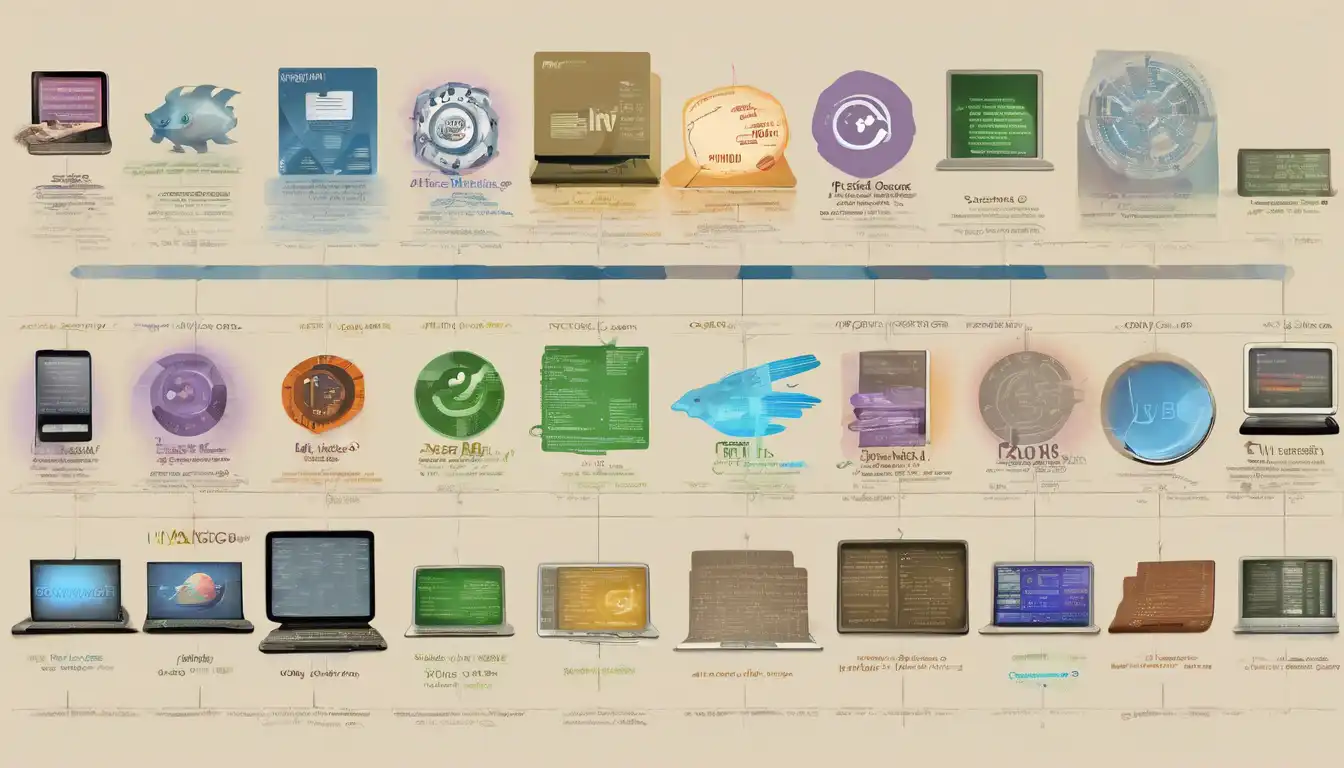The Dynamic Journey of Programming Languages Through the Ages
Programming languages have undergone a remarkable evolution since their inception, shaping the way we interact with technology. From the early days of machine code to the high-level languages of today, each step in this journey has brought us closer to more efficient and intuitive ways of programming.
The Dawn of Programming Languages
The history of programming languages begins in the 1940s with the advent of machine language, the most basic form of programming. This was followed by assembly language, which introduced a slightly more human-readable format. However, it wasn't until the 1950s that the first high-level programming languages, such as FORTRAN and LISP, were developed, marking a significant leap forward in programming efficiency.
The Rise of High-Level Languages
High-level languages like COBOL and BASIC in the 1960s and 1970s made programming more accessible to a wider audience. These languages abstracted much of the complexity of machine code, allowing programmers to focus more on problem-solving than on the intricacies of the hardware.
The Object-Oriented Revolution
The 1980s and 1990s saw the rise of object-oriented programming (OOP) languages such as C++ and Java. OOP introduced concepts like classes and objects, enabling more modular and reusable code. This period also saw the emergence of scripting languages like Python and Perl, which further simplified programming tasks.
The Modern Era of Programming
Today, we have a plethora of programming languages designed for specific purposes, from web development (JavaScript, PHP) to data science (R, Python). The evolution of programming languages continues, with new languages being developed to address the challenges of modern computing, such as concurrency and cloud computing.
Looking to the Future
As technology advances, so too will programming languages. Emerging trends like quantum computing and artificial intelligence are likely to drive the development of new languages tailored to these fields. The evolution of programming languages is a testament to human ingenuity and our relentless pursuit of more efficient ways to solve problems.
For those interested in diving deeper into the history of programming languages, check out our History of Computing section. And if you're looking to start your programming journey, our Beginner Guides can help you choose the right language for your needs.
